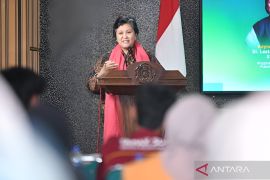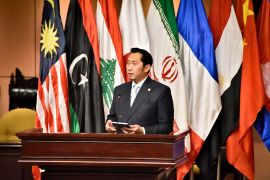"There are risks in every policy; it's just a matter of how we can anticipate the risks that arise, such as the policy of allowing the Eid homecoming exodus this year," she said in a written statement released here on Monday.
One of the risks is that 15 percent of the population is still vulnerable to COVID-19 transmission, such as unvaccinated people, children, and children below five years old, she highlighted.
She quoted a statement issued by University of Indonesia (UI) epidemiologist Pandu Riono, who said that in November and December 2021, the immunity level of the population was sufficiently high at 90 percent, so on average, Indonesian people already had immunity against the virus.
"However, there is still 15 percent of people who have never been infected and have not received the vaccine. Thus, they are vulnerable if exposed to COVID-19," she noted.
A spike in the number of homecomers could also potentially cause travel congestion at several locations, she added.
"The mobility of around 85 million homecomers this year at almost the same time, of course, requires good management from all parties to avoid casualties," she said.
The MPR Deputy Speaker expressed the hope that all parties will help make the Eid exodus a success.
This year, taking note of the improvement in the COVID-19 situation, the Indonesian government has allowed people to travel to their hometowns to celebrate Eid.
The trips will be allowed as long as prospective travelers complete their primary and booster vaccinations.
The Transportation Ministry has estimated that 85.5 million citizens, or 31.6 percent of the total population, will take part in the 2022 Eid homecoming exodus.
Related news: Ministry rolls out free sea transport facility for Eid travelers
Related news: Ministry readies three traffic schemes to implement during 2022 Eid
Related news: Jasa Marga ensures Jakarta-Cikampek Toll Road ready before Eid exodus
Translator: Imam Budilaksono, Raka Adji
Editor: Sri Haryati
Copyright © ANTARA 2022











